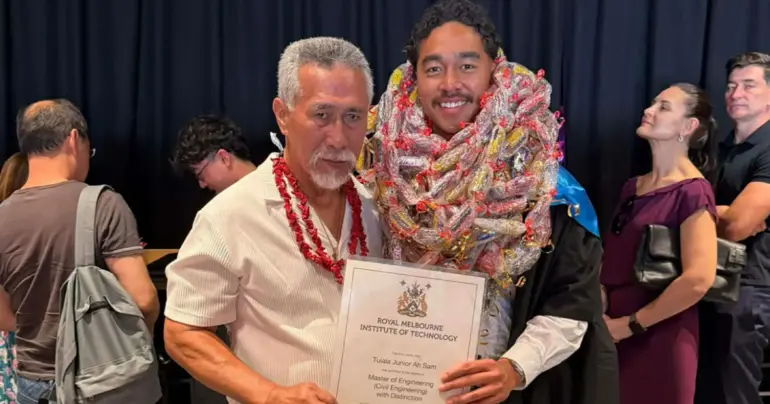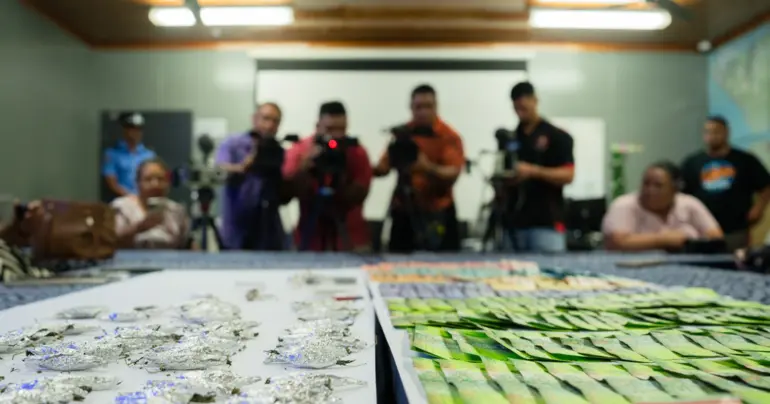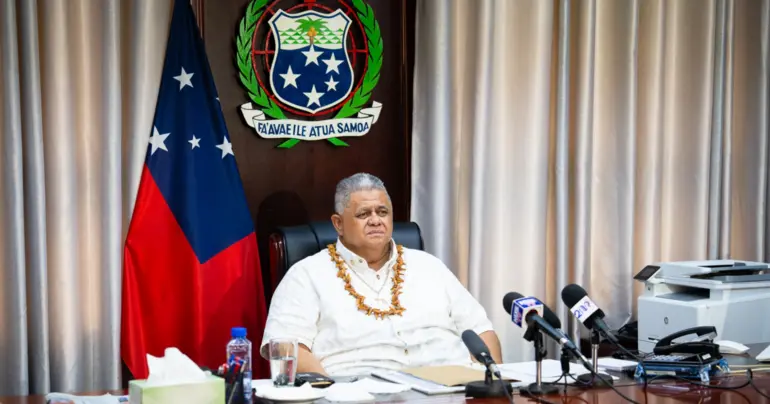Capital gains taxes worry private sector
Members of Samoa’s private sector have expressed concern with the changes in capital gains tax rules and warn that it could “remove fuel from the engine of growth.”
Last week, the Ministry for Revenue (MfR) presented proposed changes to the capital gains tax regulations to the Samoa Chamber of Commerce, saying while changes have been approved by Cabinet but they are “not set in stone.”
A draft bill is yet to be written and presented to Parliament, another key step in changing any legislation.
As consultations continue, the proposed changes have not been made available to media for publication.
The Ministry’s assistant chief executive officer for the policy division, Theresa Amosa, gave the presentation, saying the private sector are welcome to make submissions to the Ministry before a draft bill is written.
Today, capital gains are taxed at 10 per cent if the property was sold within the first 12 months of ownership, at 27 per cent if sold in the first three years, and not taxed if sold after three years of ownership.
Levine Siemu, a hardware store manager, said he is against the changes being proposed and is of the view that capital gains taxes are not appropriate for Samoa.
“It shouldn’t be done in Samoa, there are no rich people over here,” he said.
“The reason we are selling our assets is because we have to pay our loans, running out of business, so you have to sell some of your assets. If you have to pay tax on that you’re not going to make money.
“The government is trying to collect taxes from every bits and pieces, it’s really uncomfortable for a lot of people in Samoa.”
Rather, Mr Siemu said he would happily see low introductory tax rates that might eventually be increased over several years. He said he would be channelling his concerns through the Chamber to the Ministry.
“We need to get our people used to that kind of tax.”
Chief executive of Natural Foods International, Papali’i Grant Percival, also disagreed with the proposed tax rate, saying it would be an “economic destruction tool” instead of a development tool.
Capital gains taxes on all assets sold could discourage long term investment in Samoa, he added. Not only that, but the tax affects a minute proportion of Samoan people. According to Papalii, freehold land in private ownership accounts for just eight per cent of the country.
“It’s the piece of the market they always talk about as being the engine of growth,” Papalii said, referring to the Government’s description of the private sector.
“When you keep removing the fuel from the engine of growth, what happens to the engine of growth?
“It stutters, and it’s been stuttering for a few years now.”
A Government report clearly stating the division of land between customary, freehold and public land is the State of the Environment Report from 2006.
It states government land accounts for 16 per cent of land, which includes 4 per cent of land registered under the Western Samoa Trust Estates Corporation (WSTEC), which in some reports is considered freehold land, hence the discrepancy. Other reports suggest the number is closer to 15 per cent.
The Ministry of Natural Resources and Environment (MNRE) are in the process of surveying Samoa to have an updated, accurate figure, an MNRE spokesperson said.
Papalii said in other countries, governments assist their growing private sector and rural communities, not tax them, and he wants to see Samoa doing the same.
A review of capital gains tax has been ongoing since several changes were made in 2017 to the 1989 legislation.
The tax applies only to assets purchased after December 31, 1989, the year the legislation was first introduced in Samoa.
For more information on the proposed changes to capital gains taxes, contact the policy division of the Ministry on 21561.











